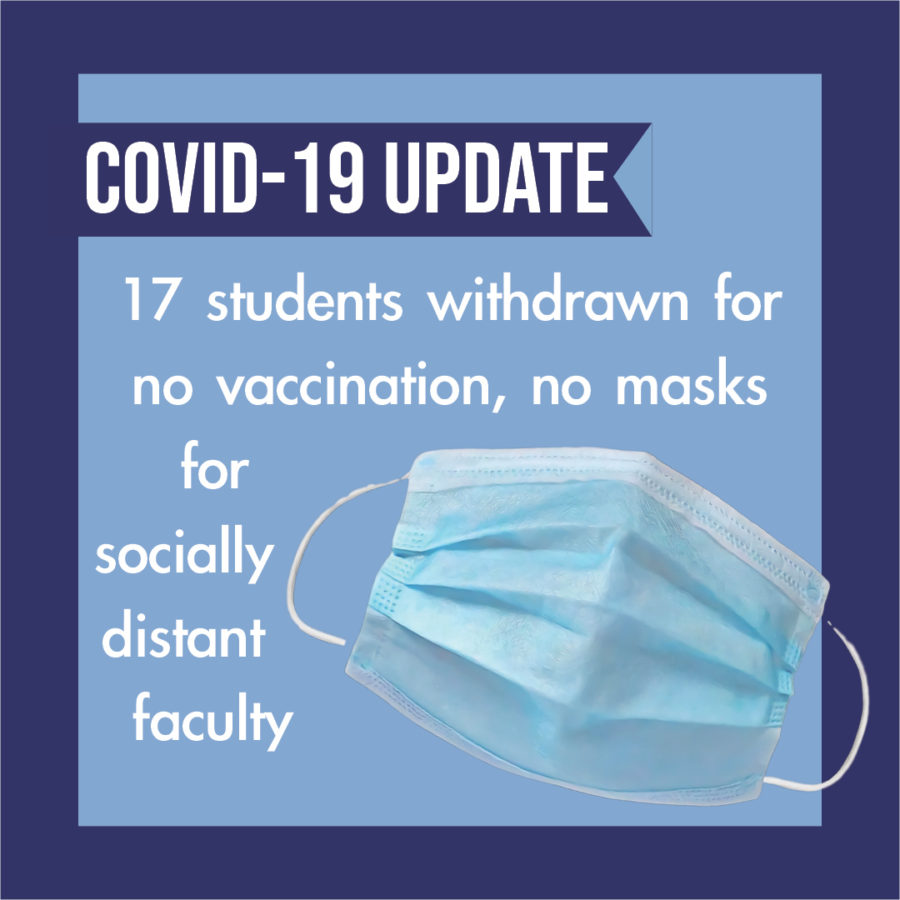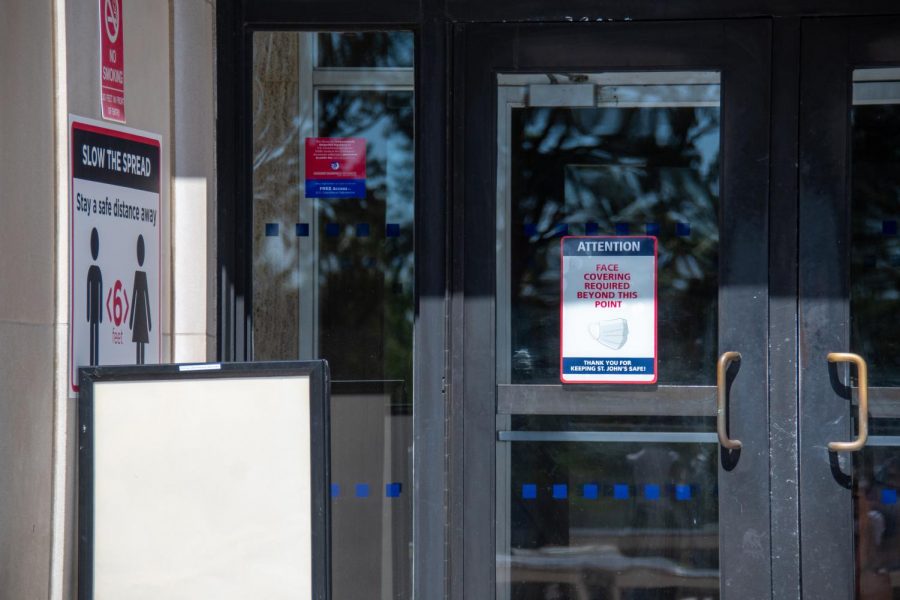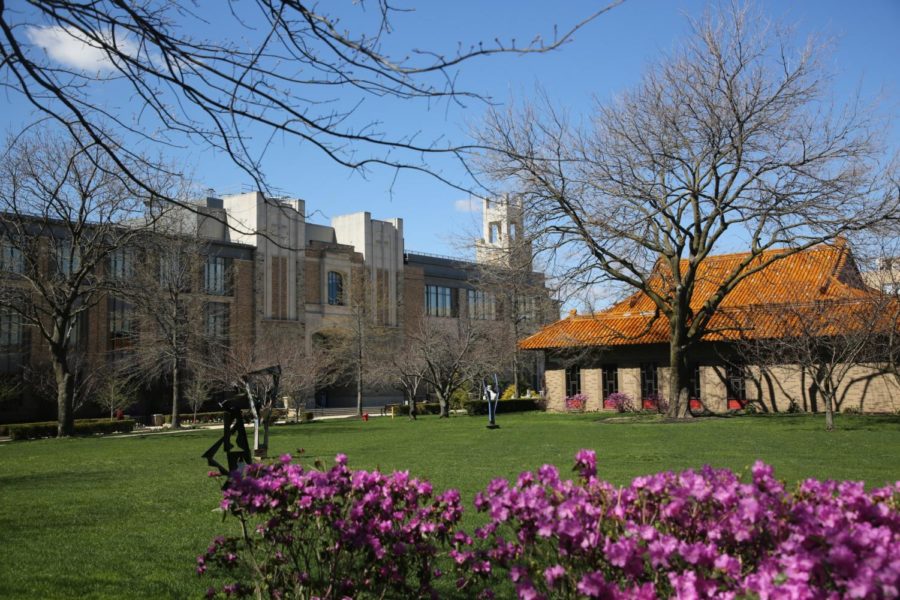Amid the coronavirus pandemic, the University recently increased the price of tuition to $43,160 for the 2020-21 academic year, an increase of 3 percent from the 2019-20 academic year.
This increase translates to a jump of more than $1,000 from the 2019-20 academic year, which saw a base tuition of $41,900 for full-time credits. Students enrolled in less than 12 credits will now pay $1,439 per credit.
“St. John’s University provides our students with a world-class education by investing in our people, programs, and facilities with minimal impact on the price of tuition,” University Spokesman Brian Browne told the Torch. “And, in keeping with our commitment to an enhanced educational experience, our 2020-2021 academic year tuition will increase by 3 percent, which remains below the national average.”
This increase comes as the University announces its plans for the upcoming fall 2020 semester, which will be predominantly conducted virtually as a result of the COVID-19 pandemic. In an interview with the Torch last month, University President Conrado “Bobby” Gempesaw indicated a lack of plans to freeze tuition, instead citing financial aid as a way to implement a “holistic” approach to helping students in the wake of COVID-19.
“The Office of Student Financial Services will make the decision on the allocation of our budgeted financial resources for direct student support. There are many ways to help our students,” Gempesaw said in the interview.
Multiple universities across New York have made financial changes and announcements. Some universities have raised their tuition for the 2020-21 academic year. New York University (NYU) raised tuition 2.95 percent from the 2019-20 academic year, and the City University of New York (CUNY) is considering a $200 tuition hike for each student. In contrast, St. Joseph’s University in Brooklyn announced a tuition freeze for the 2020-21 academic year in response to the pandemic.
This increase, which was never formally announced to students, has created concern and frustration for some, including sophomore psychology major Kayla Fittipaldi.
“To me the increase in tuition is ridiculous, especially in the current climate and it doesn’t reflect the values our University is supposed to have,” Fittipaldi said. “Right now the University should be focused on helping students, not creating even more stress and problems by making students worry about if they can afford to keep coming to [St. John’s].” She also noted that remote courses are “not the same as face to face instruction,” and that this, combined with the “vague info the University has put out” is very concerning to her.
Senior Marcus Poree plans to return to campus in the fall. Poree, a New Orleans native who pays rent off campus, says three of his courses are now online.
“It’s very frustrating,” he said. “I thought with everything going on, and families having financial troubles due to shutdowns, that St. John’s would help their students by lowering tuition or at least keeping it the same, but instead they raised it … What they are doing feels like a disservice to their student population.”
“The tuition is already inflated with meaningless fees that drive up our bills … but as an upcoming senior it would be too late to transfer, so I’m almost forced to pay this markup so I can finish my degree by 2021,” Poree said.
In response to the increase, Browne emphasized the University’s financial assistance through the Office of Financial Aid and noted the creation of the St. John’s Emergency Fund as an exercise of financial support for St. John’s students in the wake of COVID-19.
“To assist students with tuition, to date, we have already awarded more than $3.5 million to currently enrolled students who have experienced a loss of household income to assist with tuition,” Browne said.
“As we move forward, we continue our dedication to assisting students most in financial need by way of the robust distribution of institutional financial aid, which this past year totaled more than $275 million and provided financial support to 96 percent of enrolled students,” he said.
Students registered for the fall 2020 semester received their e-bill from the Office of Financial Services on June 24. Payment or payment arrangements are due no later than July 22. The breakdown of the cost of tuition, such as the fees and cost per credit, can be found here.
If you enjoyed reading and would like to continue reading more articles like this, please consider donating to the Torch here to support student journalism and #KeepTheTorchLit. Make sure to sign up for our newsletter where we keep you updated on all things St. John’s, and more!

















Tyson • Jun 29, 2020 at 12:30 pm
I totally understand the situation. But isn’t everyone suffering right now? We love St. John’s but we are struggling to pay and we’ve lost our jobs and we’ve got rent to pay. And now 3% tuition increase. Why not wait until we get back on our feet?